Publications
Articles, publications, books, tools and multimedia features from the U.S. Institute of Peace provide the latest news, analysis, research findings, practitioner guides and reports, all related to the conflict zones and issues that are at the center of the Institute’s work to prevent and reduce violent conflict.
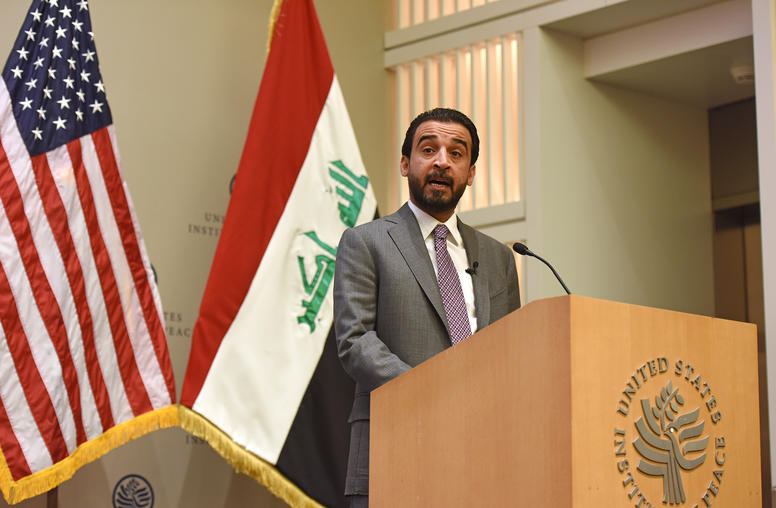
Iraq’s Leading Lawmaker Warns Aid Needed to Finish Off ISIS
Iraq is beginning to stabilize after its military victory against ISIS, but international assistance—without political meddling—remains badly needed to rebuild its economy and social fabric, the speaker of Iraq’s parliament, Mohamed al-Halbousi, said.
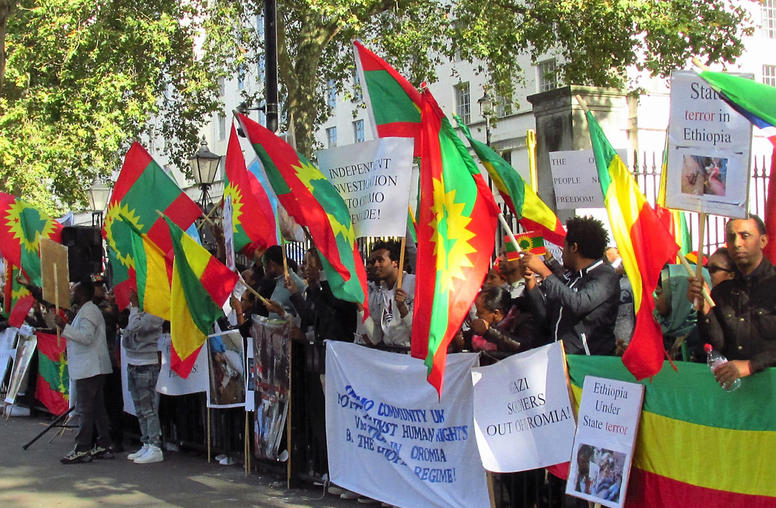
A Year of Change in Ethiopia
A year ago today, 42-year old reformist politician Abiy Ahmed became prime minister of Ethiopia. Abiy came to power during a deep political crisis with widespread grievances across this country of over 105 million people, and quickly began to enact political reforms. USIP’s Aly Verjee and Payton Knopf discuss Abiy’s year as prime minister and identify the challenges that lie ahead for eastern Africa’s most populous country.
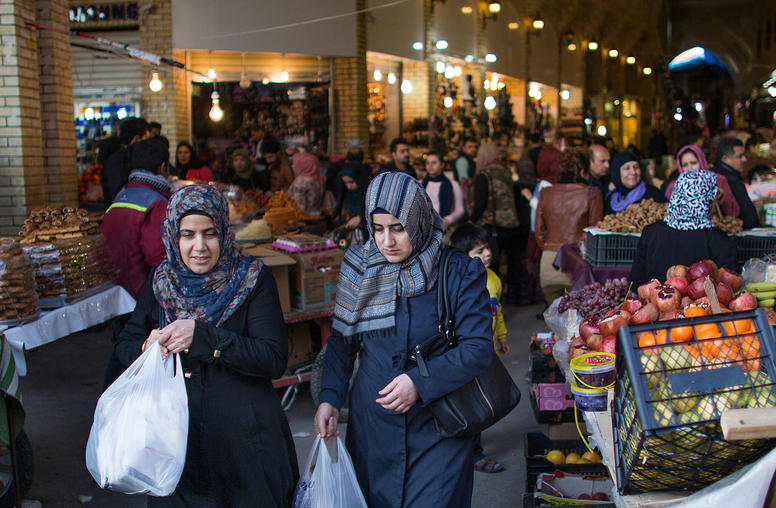
Reaching a Durable Peace in Afghanistan and Iraq: Learning from Investments in Women’s Programming
USIP recently partnered with New America to convene roundtable discussions with government, civil society, and humanitarian, development, and peacebuilding organizations to learn from the past decade of women’s programming in fragile states such as Iraq and Afghanistan. Based on these discussions, this report provides guidance for improving future programming to not only integrate the needs of women but also recognize the role women play in transforming violent conflict and sustaining a durable peace.
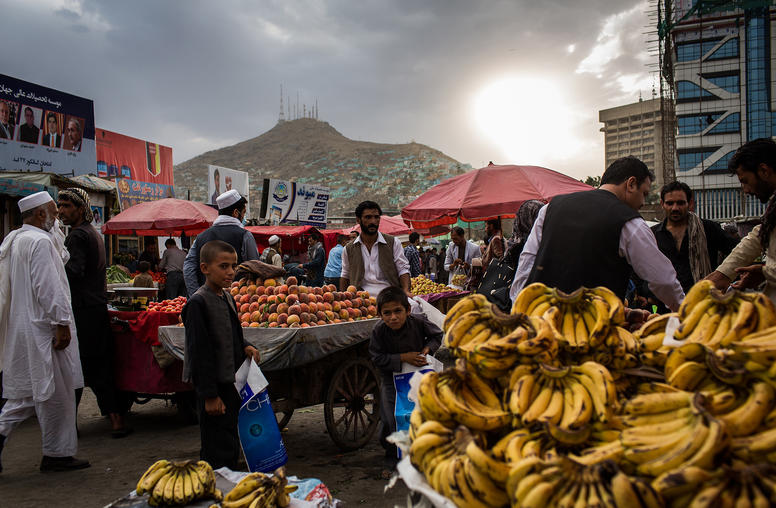
Can Afghanistan Reap a Peace Dividend if Taliban Talks Succeed?
In recent months there has been a flurry of movement in the Afghan peace process, leading to talk of a “peace dividend” that would boost the country’s economy and incentivize and sustain peace. For example, the November 2018 Geneva international conference on Afghanistan called for donors and development and regional partners to develop a post-settlement economic action plan. But what would a peace dividend look like in war-torn Afghanistan? In the short run, could it help incentivize the insurgency and state actors to agree and adhere to a peace agreement? And in the longer term, could it help sustain peace and lead to a more prosperous and stable Afghanistan?
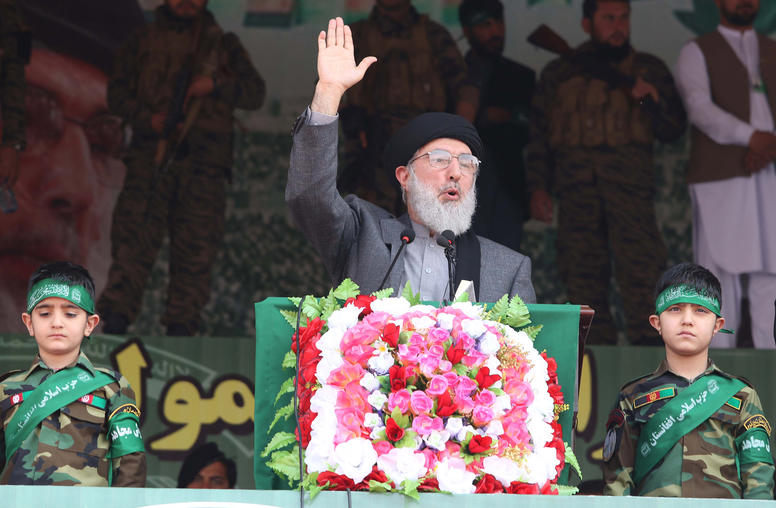
How Peace Was Made: An Inside Account of Talks between the Afghan Government and Hezb-e Islami
The September 2016 peace accord between the Afghan government and the Hezb-e Islami militant group has been regarded as a first major step toward restoring Afghanistan to a state of peace. This Special Report provides a firsthand account of the protracted negotiations that led to the agreement—and offers important insights for how similar talks might proceed with the Taliban.

Sarhang Hamasaeed on the Challenges Facing Iraq’s New Government
USIP’s Sarhang Hamasaeed says, “Iraq is at its best state in the last five years. The country is recovering from an existential fight with ISIS … and the Kurds are now back in Iraq’s politics and more involved.” Yet, many Iraqis remain disenchanted with the country’s political leaders and are skeptical of the government’s ability to deliver services, security, and jobs.

What’s at Stake in Ukraine’s Presidential Polls?
Over 35 million Ukrainians are eligible to choose their next president on March 31. However, several million voters in Russia-annexed Crimea and rebel-held parts of east Ukraine will not be able to vote, demonstrating how the conflict with Moscow looms large over these elections.
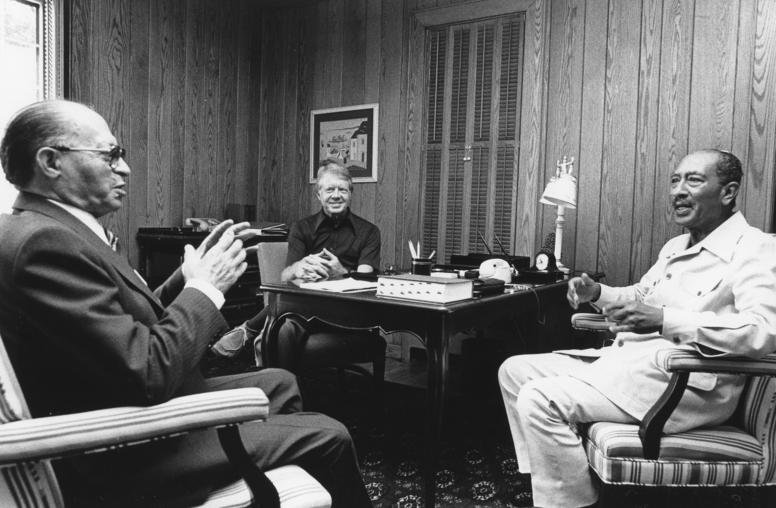
Middle East Peace: What can we Learn from Camp David 40 Years Later?
March 26 marks the 40th anniversary of the signing ceremony of the Egypt-Israel peace treaty that resulted from the Camp David Accords. Negotiated by Israeli Prime Minister Menachem Begin, Egyptian President Anwar Sadat and U.S. President Jimmy Carter, the treaty has been a cornerstone of regional security and U.S. strategy in the Middle East.

Amb. Bill Taylor on Russia’s Annexation of Crimea
On the five-year anniversary of Russia’s annexation of Crimea, Amb. Taylor—a former U.S. ambassador to Ukraine—explains why it has been so difficult for Ukraine and its allies to oust Russia from the Ukrainian territory. “Sadly … the people of Crimea are worse off than they were five years ago,” while the West continues to struggle with how to respond to Moscow’s territorial grab.
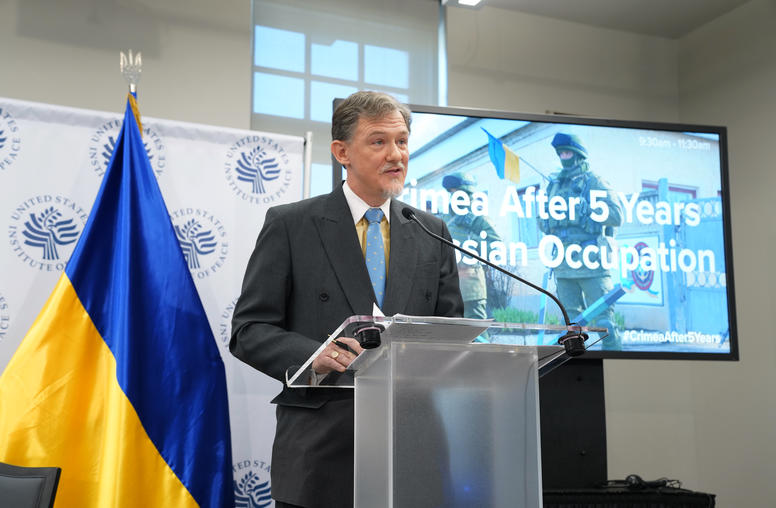
Crimea Seizure: A Policy Struggle Five Years Later
Five years after Russian forces took Crimea from Ukraine, the international community is still struggling with how to respond to a major power seizing another country’s territory for the first time since World War II and the founding of the United Nations, a senior State Department official said.